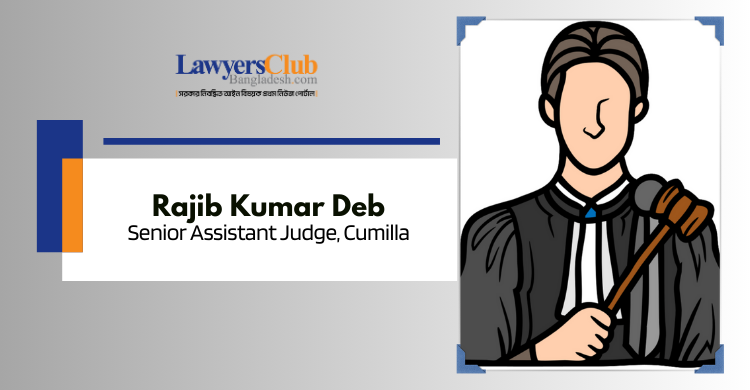Relief Against False Statements in Judicial Proceedings and the Doctrine of Perjury

Rajib Kumar Deb : In judicial proceedings, it often happens that one party intentionally makes false statements in their petition to obtain a judicial order.
For example, in writ petitions (a form of judicial proceeding), petitioners may deliberately make false statements to secure directives from the honorable High Court Division. In such cases, the aggrieved party has legal recourse under the doctrine of “Perjury.”
This discussion primarily considers the example of writ petitions.
Understanding Perjury
Perjury refers to making false statements under oath in judicial proceedings. It occurs when an individual knowingly provides false information under oath or affirmation in a legal proceeding. This includes lying during a court hearing, signing a legal document containing false information, or making a false statement in a sworn affidavit. To constitute perjury, the false statement must pertain to a material fact that can influence the outcome of the proceedings.
Relevant Legal Provisions
Penal Code, 1860
Section 191: “Whoever, being legally bound by an oath or an express provision of law to state the truth, or being bound by law to make a declaration on any subject, makes any statement that is false and which he either knows or believes to be false or does not believe to be true, is said to give false evidence.”
Section 193: “Whoever intentionally gives false evidence in any stage of judicial proceedings or fabricates false evidence for use in any stage of a judicial proceeding shall be punished with imprisonment of either description for a term extending up to seven years and shall also be liable to a fine. In any other case, the punishment extends to three years’ imprisonment and a fine.”
Section 209: “If a person fraudulently or dishonestly makes a false claim in court, they may be punished with up to two years of imprisonment and a fine.”
Oaths Act, 1973
Section 4: Courts and authorized persons may administer oaths and affirmations in the discharge of their duties.
Section 5: Oaths or affirmations must be made by all witnesses who are legally required to give evidence before any court or authorized person.
Section 14: Every person giving evidence before a court must state the truth.
Section 11: The evidence provided is considered conclusive proof against the person offering it.
When filing a petition under the Oaths Act, 1973, in the High Court Division of the Supreme Court, the petitioner must take an oath or affirmation in accordance with Rule 5, Chapter IV, Part I of the Supreme Court of Bangladesh Rules. The affidavit supporting the petition must comply with Order XIX of the Code of Civil Procedure, 1908, and the relevant Supreme Court rules. If the petition is a writ petition under Article 102 of the Constitution of Bangladesh, the affidavit must be sworn before an authorized officer, such as a Notary Public or an Affidavit Commissioner of the High Court Division.
In writ petitions, the petitioner, being legally bound, files an affidavit alongside the writ petition and participates in the administration of oaths. If a petitioner submits a misleading document as an annexure to the writ petition, this serves as conclusive proof of the false statement contained therein.
Legal Question on False Evidence
A pertinent legal question arises as to whether false evidence, as defined in Section 193 of the Penal Code, qualifies as admissible evidence. Since Sections 191 and 193 independently establish the doctrine of perjury and the legal consequences of false statements, Section 3 of the Evidence Act, 1972, may not be relevant in this context.
From a legal standpoint, offenses under Sections 191, 193, and 209 of the Penal Code, 1860, appear to have been committed when a petitioner, under oath, makes false statements, submits false evidence, and fraudulently claims relief.
Legal consequences follow under Section 195(B) of the Criminal Procedure Code, 1898.
Additional Legal Considerations
(a) Contempt of Court Act, 1926 & 2003
If false information misleads the court and obstructs the administration of justice, the person responsible may be held liable for contempt of court, which can result in fines or imprisonment.
(b) Criminal Procedure Code (CrPC), 1898
Section 340: If a court finds that a person has knowingly provided false information, it can initiate an inquiry and prosecute the individual.
(c) Civil and Criminal Remedies
If a false statement causes harm to another party, the affected person may:
File a criminal complaint under the Penal Code and CrPC.
Seek civil remedies such as compensation or cancellation of the fraudulent order.
File an application in the same court for a review, recall, or setting aside of the order obtained through fraud.
Perjury, false evidence, and fraudulent claims in judicial proceedings carry severe legal consequences under multiple statutes. Therefore, the aggrieved party has both criminal and civil avenues for redress against false statements in judicial proceedings.
Author : Senior Assistant Judge, Cumilla

